
Discussing the Procurement of Armed Drones: A very German-style deliberation
Germany is in uproar. The question whether to procure armed drones for the Bundeswehr is currently dividing the public and the political elite
It all began in August 2012 when German Defence Minister Thomas de Maizière, in an interview with the daily Die Welt [in German], stated his support for the acquisition of armed unmanned aerial vehicles (UAVs or “drones” in popular parlance) for the German Bundeswehr. In the interview, de Maizière argues that the advantages of deploying armed UAVs are clear: “deploying an unmanned drone instead of a manned aircraft serves the security of our soldiers.” “[with UAVs], I can protect soldiers such as tank drivers or pioneers from the air.” [My translation]
The reason behind de Maizière’s public deliberations on this topic is a soon to expire leasing contract between the German Bundeswehr and Israeli Aerospace Industries (IAI).
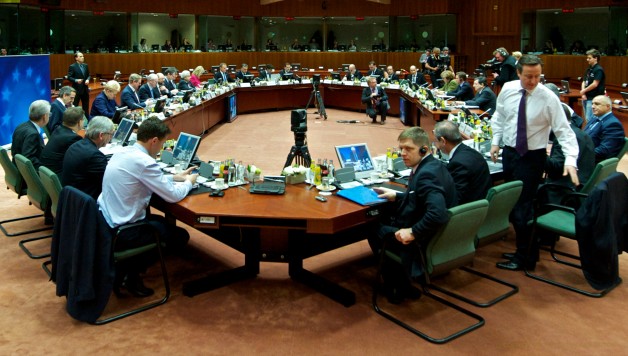
The EU budget is a missed opportunity for Europe
Last Friday, after 24 hours of negotiations, European leaders agreed on a new EU budget deal for 2014-2020. Two summits were needed: one was held in November 2012, and another last week that ended in agreement. For the coming seven years, the member states will contribute 960 billion Euros towards the EU project—85 billion less than the European Commission’s original proposal. It is a flimsy budget, one by no means fit to deal with the economic challenges that Europe is currently facing.
It is quite understandable that countries such as the Netherland, Denmark and the United Kingdom aimed for a slashed budget: in times of crisis, it is hard to sell the message of pouring even more money into Brussels’ accounts. Indeed, the slash-the-budget-camp has proved to be quite effective in furthering its agenda.
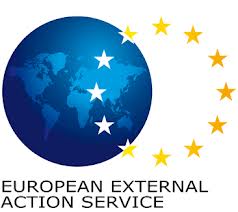
EU Reform: Five recommendations for the European Foreign Service
With the Lisbon Treaty, the member states of the European Union (EU) established a European External Action Service (EEAS), otherwise known as the ‘European foreign service’, consisting of several thousand officials drawn from the EU institutions and national diplomatic offices. The EEAS has existed since January 2011 and falls under the authority of the EU High Representative Lady Ashton. In addition to the Brussels headquarters, there are some 140 EU delegations (‘embassies’) in other countries. This spring, there will be a formal review. The mid-2013 review of the EEAS, as it is called, presents an opportunity to improve the current structure. Catherine Ashton should use the momentum of this review to make the EEAS a more effective international actor. The EEAS will be an important part of her legacy after she resigns as High Representative next year. I have five recommendations.
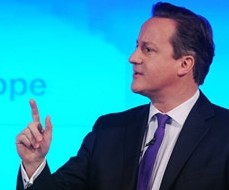
Playing the referendum game
This morning, in his much anticipated speech on the European Union, David Cameron announced that he would seek to renegotiate the terms of the UK’s membership of the EU and then offer an in/out referendum to the British public. It was the sort of ‘announcement’ only possible in politics – something we’ve more or less known was coming for months, the details of which were released the night before.
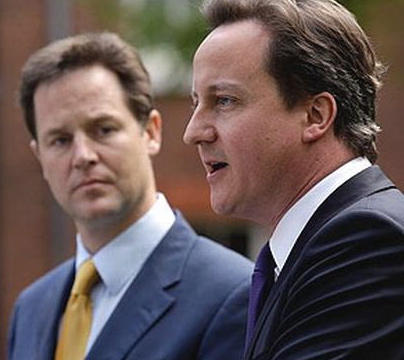
What Next for Britain’s Pro-Europeans?
Having, until now, benefited from the tacit support of the existing political elite, Britain’s pro-European lobby has had less incentive to create a formal political movement. However, if the anti-European jungle drums continue to beat louder, it seems only a matter of time before the pro-Europeans organise, perhaps in advance of the June 2014 European elections.
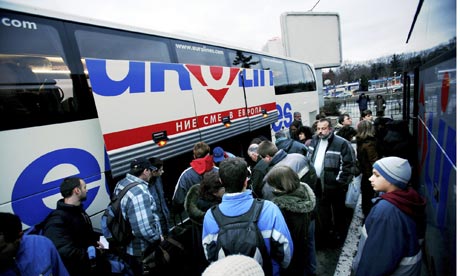
How many Bulgarians and Romanians will come to the UK? Estimating migration is hard, but the lifting of restrictions on ‘A2’ nationals is unlikely to have the impact of the 2004 enlargement
On 1 January 2014 British labour markets will be open to Romanian and Bulgarian nationals (the “A2”) as they are to people from the rest of the EU. Many are wondering what the effects will be – although some impacts of Romanian and Bulgarian free movement have already happened, with an estimated 100,000 to 150,000 people born in the A2 currently living in Britain.
Still, the lifting of restrictions creates an expectation of increasing rates of immigration. Over the weekend Eric Pickles claimed to have seen estimates of how many Romanians and Bulgarians might arrive – though he would not reveal what the estimates were – and worried about pressure on the UK’s housing market. Other prominent politicians, including Theresa May and Ed Miliband, have raised concerns that increased migration may reduce wages, especially for the lowest earners.

Integration on Trial: EU disintegration is still possible and the theories behind supernational governance offer little guidance
It is right to ask questions about a possible European disintegration. But we won’t find answers by looking at integration theory. Indeed, many theories have sought to explain why and how supranational governance develops, but, as I argue in a recent essay, many of them give us only a little hint as to why, when and how supranational competences can be repatriated. In this essay, and this post, I examine two of the most influential ones: ‘neofunctionalism’ and ‘intergovernmentalism’.

The Liberal Revolution of the Italian Left
The Italian left, heirs to the strongest communist party in Western Europe and a powerful Catholic political tradition, is struggling to adjust its values and political agenda to the new needs and constrains of the modern globalised world. As the Democratic Party seems set to win Italy’s general elections next year, and thus take control of the third largest economy of the Eurozone, such ideological adjustment is now particularly urgent.









